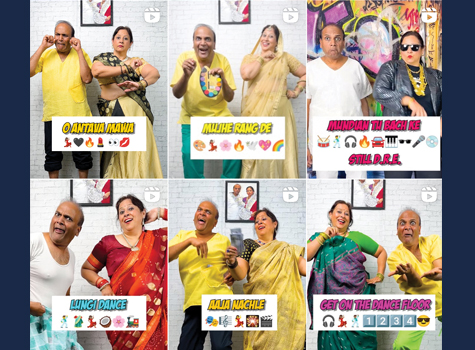
Imagine an ordinary day in prehistoric times where human cave dwellers wake up and consider themselves lucky that they are still alive. Their daily quest is finding food and feeding their family without becoming a meal. Back then their full-time job was living, and surviving was the most ambitious career goal. Ironically, the focus has shifted to the world of work where we live sparingly and eat less even though we are surrounded by abundant gastronomic temptations. Every decision appears to be dependent on our work. It’s hard to determine the exact time or place when the switch from living to working for a living happened but we can be certain that there is no turning back.
The Role of Family
The caste system prevalent in ancient India assigned professions by birth and its effects linger to this day. In other parts of the world, like Europe, class, and aristocracy, which are also linked to birth, continue to define one’s privileges in life. 2022 was not the only “Year of the Nepo Baby”. Nepotism has ruled for centuries quite literally in monarchy, as it was the norm rather than the exception.
The stereotypical Indian parent is believed to pick their child’s career at the time of his birth. I say “his” because until a few decades ago, a baby girl was not considered as an individual who would grow up to seize the reins of a family business or become an engineer developing an innovative design. Many of these factors lowered the chances of upward mobility. The average Joe or Jai was not expected to rise more than one level above his parent’s socio-economic strata. It’s heartening to see that there are some that defy these expectations. For example, in Mumbai, certain vada pav & bhelpuri wallahs earn enough to buy expensive flats.
The most popular sandwich seller who parked his pushcart outside my husband’s engineering college often bragged to the students that his monthly income was higher than the salaries of the newly minted engineers. Scrap metal dealers around India can potentially rake up more cash than dentists practicing in the same area.
Job Value
In an ideal world all jobs would be important, and every human’s contribution would be considered equally valuable. Unfortunately, that is as far from the truth as possible. Professions vary in status and an individual’s worth is calculated using more yardsticks than I can count. Let’s take marriages as an example. Traditional matchmaking in patriarchal societies almost always placed the current and future income of the groom as the top criterion. Money and its source have influenced the person’s place of residence as well as their access to desirable opportunities in society including the unspoken ones. I recently met a young college dropout who introduced himself as “just a YouTuber” perhaps because a career based on social media may be viewed as a hobby. On the contrary, I find it heartening to see the younger generation explore unconventional occupations even though old-fashioned curmudgeons may dismiss them as distractions. If rumors are to be believed, a couple of the lavish homes in our neighborhood are owned by 30 something YouTubers.
Most economies are guilty of favoring and rewarding specific fields. STEM related professionals generally earn decent income whereas individuals considered “blue collar workers” are barely making ends meet at their hourly pay rate. Graduating with a college degree does not place students on an equal footing either. An engineer can probably afford a home as soon as he or she gets a job but no such luck for a teacher who has just completed a degree in Special Education.
My master’s degree in counseling from the University of Mumbai enabled me to work as a school counselor and the low pay never bothered me as I did not have a family that depended on my income. At that time, my peers who had completed management programs had enviable salaries. However, when I moved to the United States, it was fulfilling to see that students like me, who had worked toward a master’s degree in industrial and organizational Psychology could potentially earn the same amount as engineers and marketing managers.
What’s common in both countries is that the arts brutally punish anyone who is not exceptional while rewarding gifted artists disproportionately.
Passion versus Practicality
My parents’ generation believed that the sole criterion for career selection was its practical value, in other words, will you make enough money? Individuals of my age tend to prefer passion. Dual income families provide the financial cushion to allow one partner to pursue passion and, in many cases, wealth follows. Others have found a way to integrate both as they engage in activities that they are passionate about outside the office. One could think of it as an investment in mental health as it could help people relax, trigger their creativity and they could potentially return to work with newfound energy. These privileges, however, may not be available to all or at the right times in one’s life.
An Everchanging World
The fluidity of the world of work keeps everyone on their toes by challenging long held beliefs and knowledge. With the emergence or perhaps more accurately, the increasing sophistication of artificial intelligence, many jobs may become obsolete. We may not even be equipped to guide our children on how to succeed in their vocations. Future professionals must aim to develop skills that can’t be imitated or replaced and then be ready for another disruption. As we all know, change is the only constant.
Shyama Parui is a long time North Carolina resident and an ardent writer. You can reach her at: shyamashree_parui@hotmail.com



